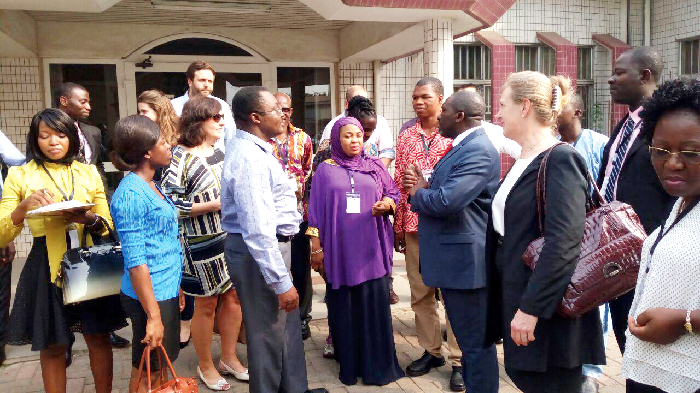Korle Bu Teaching Hospital
Brief History
Established on October 9, 1923, the Korle Bu Teaching Hospital has grown from an initial 200 bed capacity to over 1,500. It is currently the third largest Hospital in Africa and the leading national referral centre in Ghana.
Korle Bu, which means the valley of the Korle lagoon, was established as a General Hospital to address the health needs of the indigenous people under Sir Gordon Guggisberg’s administration, the then Governor of the Gold Coast.
Population growth and the proven efficacy of hospital-based treatment caused a rise in hospital attendance in Korle Bu. By 1953, demand for the Hospital’s services had escalated so high that the government was compelled to set up a task force to study the situation and make recommendations for the expansion of the Hospital.
The government accepted and implemented the recommendations of the task force which resulted in the construction of new structures, such as the Maternity, Medical, Surgical and Child Health Blocks. This increased the Hospital’s bed capacity to 1,200.
Korle Bu gained teaching hospital status in 1962, when the University of Ghana Medical School (UGMS) was established for the training of medical doctors. The UGMS and five other constituent schools are now subsumed under the College of Health Sciences to train an array of health professionals. All the institutions of the College however, undertake their clinical training and research in the Hospital.
At the moment, the Hospital has 2,000 beds and 17 clinical and diagnostic Departments/Units. It has an average daily attendance of 1,500 patients and about 250 patient admissions.
Clinical and diagnostic departments of the Hospital include Medicine, Child Health, Obstetrics and Gynaecology, Pathology, Laboratories, Radiology, Anaesthesia, Surgery, Polyclinic, Accident Centre and the Surgical/Medical Emergency as well as Pharmacy. Other Departments includes, Pharmacy, Finance, Engineering, General Administration.
The Hospital also provides sophisticated and scientific investigative procedures and specialisation in various fields such as Neurosurgery, Cardiothoracic surgery, Paediatric Surgery Dentistry, Ophthalmology, ENT, Renal, Orthopaedics, Oncology, Dermatology, Radiotherapy, Radio diagnosis, and Reconstructive Plastic Surgery and Burns.
The National Reconstructive Plastic Surgery and Burn Centre, the National Cardiothoracic Centre and the National Centre for Radiotherapy and Nuclear Medicine in particular also draw a sizeable number of their clientele from neighbouring countries such as Burkina Faso, Nigeria, and Togo.
Korle Bu Teaching Hospital continues to blaze the trail when it comes to the introduction of specialised services. It carried out the first ever kidney transplant in Ghana in 2008. It is one of the few hospitals in Africa where sophisticated laboratory investigations are carried out. Other specialised services the Hospital provides include brachytherapy intervention for the treatment of prostate cancer and keyhole surgeries.
Plans are underway to venture into molecular testing and employ the use of cutting-edge technology in care delivery. All these are part of the grand plan to offer a wider spectrum of specialist care to position Ghana as the hub of health tourism within the West Africa Sub-region.

